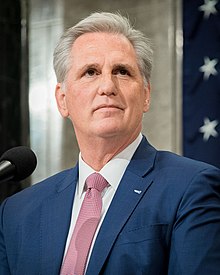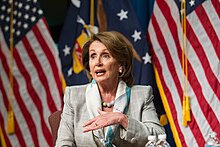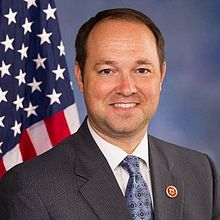Posts Tagged ‘WARREN BUFFETT’
ABC NEWS, ADOLF HITLER, ALTERNET, AMERICABLOG, AP, BABY BOOMER RESISTANCE, BARACK OBAMA, BBC, BILL CLINTON, BLOOMBERG NEWS, BORDER WALL, BUZZFEED, CBS NEWS, CHARLES SCHUMER, CHRIS CILLIZZA, CHRIS MATTHEWS, CNN, CROOKS AND LIARS, DAILY KOS, DANIEL ISSA, DAVID BROOKS, DEBT CEILING, EXECUTIVE ORDERS, EXTORTION, FBI, FEDERAL AVIATION ADMINISTRATION, FEDERAL GOVERNMENT SHUTDOWN, FIVETHIRTYEIGHT, HARPER’S MAGAZINE, HOUSE SPEAKER JOHN BOEHNER, HUFFINGTON POST, INSIDER, JOSE ANDRES, JOSEPH R. BIDEN, KEVIN MCCARTHY, LEN BLAVATNICK, MATT GAETZ, MEDIA MATTERS, MITCH MCCONNELL, MOTHER JONES, MOVEON, MSNBC, MSNBC'S "HARDBALL", NANCY PELOSI, NAZI GERMANY, NBC NEWS, NEGOTIATING, NEW REPUBLIC, NEWSDAY, NEWSWEEK, NEWT GINGRICH, NPR, PAP SMEARS, PBS NEWSHOUR, PLANNED PARENTHOOD, POLITICO, POLITICUSUSA, R.I.CO. ACT, RAFEAL “TED” CRUZ, RAW STORY, REINHARD HEYDRICH, REPUBLICAN PARTY, REUTERS, ROBERT PAYNE, SALON, SEATTLE TIMES, SLATE, STATE OF THE UNION ADDRESS, TALKING POINTS MEMO, THE ATLANTIC, THE CHICAGO SUN-TIMES, THE CHICAGO TRIBUNE, THE DAILY BEAST, THE DAILY BLOG, THE GUARDIAN, THE HAMILTON PROJECT, THE HILL, THE HUFFINGTON POST, THE INTERCEPT, THE LIFE AND DEATH OF ADOLF HITLER (BOOK), THE LOS ANGELES TIMES, THE NATION, THE NEW REPUBLIC, THE NEW YORK TIMES, THE NEW YORKER, THE VILLAGE VOICE, THE WASHINGTON POST, THINKPROGRESS, TIME, TITLE X, TRANSPORTATION SAFETY ADMINISTRATION (TSA), TRUTHDIG, TRUTHOUT, TWITTER, TWO POLITICAL JUNKIES, U.S. NEWS & WORLD REPORT, UNITED STATES HOUSE OF REPRESENTATIVES, UNITED STATES SENATE, UPI, USA TODAY, VLADIMIR PUTIN, VOLODYMYR ZELENSKY, WARREN BUFFETT, WILBUR ROSS, WINSTON CHURCHILL, WONKETTE
In Bureaucracy, History, Law, Law Enforcement, Medical, Politics, Social commentary on October 6, 2023 at 12:11 am
Republicans are already gearing up for their next extortionate threat: Do what we want or we’ll shut down the Federal Government.
Among the consequences:
“If you don’t send out Social Security checks, I would hate to think about the credit meeting at S&P and Moody’s the next morning,” said Warren Buffett, CEO of Berkshire Hathaway
“If you’re not paying millions and millions and millions of people that range in age from 65 on up, money you promised them, you’re not a AAA” credit rating.
But this does not have to happen.
REMEDY 2: THE JUSTICE DEPARTMENT SHOULD INDICT FOR EXTORTION THOSE HOLDING THE GOVERNMENT HOSTAGE.
President Joseph Biden could order the Justice Department to invoke the Racketeer Influenced Corrupt Organizations (RICO) Act.
Passed by Congress in 1970, as Title 18, United States Code, Sections 1961-1968, its goal was to destroy the Mafia.

The United States Department of Justice
RICO opens with a series of definitions of “racketeering activity” which can be prosecuted by Justice Department attorneys. Among those crimes: Extortion.
Extortion is defined as “a criminal offense which occurs when a person unlawfully obtains either money, property or services from a person(s), entity, or institution, through coercion.”
And if President Biden believed that RICO was not sufficient to deal with Republicans’ extortion attempts, he could rely on the USA Patriot Act of 2001, passed in the wake of 9/11.
In Section 802, the Act defines domestic terrorism. Among the behavior defined as criminal:
“Activities that…appear to be intended…to influence the policy of a government by intimidation or coercion [and]…occur primarily within the territorial jurisdiction of the United States.”
The remedies for punishing such criminal behavior were now legally in place. President Biden needs only to direct the Justice Department to apply them.
PROBLEM: This would require a Democratic President and Justice Department to act courageously—which would be a rarity for either.
Example: 147 Republican Congressional members voted to invalidate the Electoral College vote count of the 2020 Presidential election. To this date, not one has been indicted for treason.
REMEDY 3: PRESIDENT BIDEN SHOULD ATTACK THE REPUBLICAN PARTY AS A THREAT TO NATIONAL SECURITY.
Numerous Republicans have taken “campaign contributions”—i.e., bribes—from Russian oligarchs linked to Russian dictator Vladimir Putin.
One Russian oligarch—Len Blavatnik—has given millions of dollars to top Republican leaders such as Senators Mitch McConnell (Kentucky), Marco Rubio (Florida) and Lindsey Graham (South Carolina).
Putin’s monies have been well-spent: About 90 House Republicans—out of a total of 213—attended Volodymyr Zelensky’s address to Congress on December 21, according to CQ Roll Call. Some who did spent much of the speech on their phones.
Many Republicans—such as former House Speaker Kevin McCarthy, who in 2021 received about $255,000 from Blavatnik—have openly threatened to end all funding for Ukraine’s heroic struggle against Russian aggression.

Kevin McCarthy
Even some “Reagan Republicans”—such as James Kirchick, a conservative foreign correspondent and author—have openly denounced this treason.
Thus, the White House could ignite an internal conflict within the Right by pitting Republicans against each other.
PROBLEM: Democrats rarely find the courage to attack their enemies as traitors, even when the treason is manifest—as it was when Donald Trump was elected President with the support of Vladimir Putin.
REMEDY 4: CITIZENS WHOSE LIVES HAVE BEEN DRASTICALLY HARMED BY REPUBLICAN POLICIES COULD CHOOSE “THE HEYDRICH SOLUTION.”
Reinhard Heydrich was second-in-command of the dreaded Schutzstaffel, or Protective Squads, better known as the SS. Among his his multitude of crimes Designing “The Final Solution to the Jewish Question,” resulting in the slaughter of six million men, women and children.
In 1941 he was appointed “Reich Protector” of Czechoslovakia, which Nazi Germany had absorbed in 1938. The Czechs were growing restive under brutal Nazi rule, and Heydrich’s mission was to stamp out that unrest.

Reinhard Heydrich
The Czech government-in-exile, headquartered in London, decided to assassinate Heydrich.
Two British-trained Czech commandos—Jan Kubis and Joseph Gabcik—parachuted into Prague—where they got unexpected help from Heydrich himself.
Supremely arrogant, like today’s Republican leaders, he traveled the same route every day from home to his downtown office, refusing to be escorted by armed guards. He claimed that no one would dare attack him.
He was wrong.
On May 27, 1942, Kubis and Gabcik waited at a hairpin turn in the road always taken by Heydrich. When Heydrich’s Mercedes slowed down, Gabcik raised his machinegun–which jammed. Rising in his seat, Heydrich aimed his revolver at Gabcik—as Kubis lobbed a hand grenade at the car.
The explosion drove steel and leather fragments of the car’s upholstery into Heydrich’s diaphragm, spleen and lung.
Adolf Hitler dispatched doctors from Berlin to save the Reich Protector. But infection set in, and on June 4, 1942, Heydrich died at age 38.
ADVISORY: While this remedy is not suggested, it remains an extremely real possibility. Those who have lost access to food, housing and/or medical care for themselves or loved ones under “screw-the-poor” Republican policies could easily decide to follow the advice of Winston Churchill.
When England seemed threatened with a German invasion in 1940, his daughter-in-law, Pamela, asked: “But, Papa, what can I do?”
Replied Churchill: “You can always get a carving knife from the kitchen and take one of the bastards with you.”
ABC NEWS, ADOLF HITLER, ALTERNET, AMERICABLOG, AP, BABY BOOMER RESISTANCE, BARACK OBAMA, BBC, BILL CLINTON, BLOOMBERG NEWS, BORDER WALL, BUZZFEED, CBS NEWS, CHARLES SCHUMER, CHRIS CILLIZZA, CHRIS MATTHEWS, CNN, CROOKS AND LIARS, DAILY KOS, DANIEL ISSA, DAVID BROOKS, DEBT CEILING, EXECUTIVE ORDERS, EXTORTION, FBI, FEDERAL AVIATION ADMINISTRATION, FEDERAL GOVERNMENT SHUTDOWN, FIVETHIRTYEIGHT, HARPER’S MAGAZINE, HOUSE SPEAKER JOHN BOEHNER, HUFFINGTON POST, INSIDER, JOSE ANDRES, JOSEPH R. BIDEN, KEVIN MCCARTHY, LEN BLAVATNICK, MATT GAETZ, MEDIA MATTERS, MITCH MCCONNELL, MOTHER JONES, MOVEON, MSNBC, MSNBC'S "HARDBALL", NANCY PELOSI, NAZI GERMANY, NBC NEWS, NEGOTIATING, NEW REPUBLIC, NEWSDAY, NEWSWEEK, NEWT GINGRICH, NPR, PAP SMEARS, PBS NEWSHOUR, PLANNED PARENTHOOD, POLITICO, POLITICUSUSA, R.I.CO. ACT, RAFEAL “TED” CRUZ, RAW STORY, REINHARD HEYDRICH, REPUBLICAN PARTY, REUTERS, ROBERT PAYNE, SALON, SEATTLE TIMES, SLATE, STATE OF THE UNION ADDRESS, TALKING POINTS MEMO, THE ATLANTIC, THE CHICAGO SUN-TIMES, THE CHICAGO TRIBUNE, THE DAILY BEAST, THE DAILY BLOG, THE GUARDIAN, THE HAMILTON PROJECT, THE HILL, THE HUFFINGTON POST, THE INTERCEPT, THE LIFE AND DEATH OF ADOLF HITLER (BOOK), THE LOS ANGELES TIMES, THE NATION, THE NEW REPUBLIC, THE NEW YORK TIMES, THE NEW YORKER, THE VILLAGE VOICE, THE WASHINGTON POST, THINKPROGRESS, TIME, TITLE X, TRANSPORTATION SAFETY ADMINISTRATION (TSA), TRUTHDIG, TRUTHOUT, TWITTER, TWO POLITICAL JUNKIES, U.S. NEWS & WORLD REPORT, UNITED STATES HOUSE OF REPRESENTATIVES, UNITED STATES SENATE, UPI, USA TODAY, VLADIMIR PUTIN, VOLODYMYR ZELENSKY, WARREN BUFFET, WARREN BUFFETT, WILBUR ROSS, WINSTON CHURCHILL, WONKETTE
In Bureaucracy, History, Law, Law Enforcement, Medical, Politics, Social commentary on October 5, 2023 at 12:10 am
One reason why a handful of House Republicans threatened to shut down the Federal Government by October 1: Calling themselves “budget deficit hawks,” they demanded huge cuts in non-military spending.
Among the programs these cuts would have devastated: Food safety, education, law enforcement, housing, public health, Head Start and child care, Meals on Wheels.
Their attitude toward budget deficits had been vastly different while Donald Trump was President.
On August 2, 2019, Trump signed into law a two-year budget deal that raised spending by $320 billion over existing spending caps set in a 2011 law—and boosted military and domestic spending.
The bill also lifted the debt ceiling, which is the legal limit on the amount of debt the federal government can have.
The bill threatened to push the budget deficit to more than $1 trillion in 2019 for only the second time since the Great Recession of 2007-2008 and add $1.7 trillion to the federal debt over a decade.

Donald Trump
By January, 2021, the national debt had risen by almost $7.8 trillion during Trump’s four years in office. It amounted to about $23,500 in new federal debt for every person in the country.
Senate Majority Leader Mitch McConnell (R-KY) praised the Republicans’ massive contribution to the national debt.
Now, with a Democratic President in office, Republicans—invoking the my-way-or-else “negotiating” strategy of Adolf Hitler—were threatening to plunge the United States into financial ruin unless their extortion demands were met.
The casualties of a government shutdown would include:
- Seven million vulnerable mothers and children would stop receiving monies for food under the Women and Children (WIC) program.
- All active-duty military personnel and law enforcement officers would be forced to work without pay until appropriated funds became available.
- If additional catastrophes occurred, FEMA’s Disaster Relief Fund could be depleted, thus complicating new emergency response efforts.
- Critical research on diseases like cancer and Alzheimer’s would stall because the National Institutes of Health would be forced to delay new clinical trials.
- Air traffic controllers and Transportation Safety Administration (TSA) officers would be forced to work without pay. The added stress they would face from being unable to meet rent and food payments could dangerously affect their job performance.
- Most EPA-led inspections at hazardous waste sites as well as drinking water and chemical facilities would stop.
- The Food and Drug Administration would be forced to delay food safety inspections for a wide variety of products across the country.
Here’s what Republicans demanded in return for not shutting down the government:
- Severe cuts would be made to Social Security by increasing the age of future retirees.
- Disabled Americans on Medicare would be forced to wait longer to receive benefits.
- Medicare would be turned into a voucher system—which would remove the guarantee for seniors to have access to affordable medical care.
- Taxes would be cut for the wealthy and corporations.
- More requirements would be imposed on the poor trying to obtain social services.
- “Regulatory reforms that increase economic growth” (i.e. allowing corporations to ignore laws protecting employees, customers and/or the environment) would become law.
- Further funding to defend Ukraine against continuing aggression by Russia would end.

By a last-minute compromise between House Majority Leader Kevin McCarthy and Democrats, this latest Republican extortion attempt was averted.
But current funding will expire on November 17. And then the country will face yet another date with financial disaster.
Fortunately, there are several ways to permanently address these exercises in political criminality.
REMEDY 1: LEGALLY REQUIRE CONGRESS TO STAY IN SESSION UNTIL A BUDGET COMPROMISE IS REACHED.
The federal government’s fiscal year ends every September 30. Before this deadline, Congress must write and pass the budget for the next fiscal year. If a budget agreement is not reached in time, funding for federal agencies lapse and the government shuts down.
Yet with the shutdown deadline looming, on July 29, the House and Senate broke for their annual August recess. The Senate remained in recess until September 5; the House remained in recess until September 12.
Congress had to enact all 12 appropriations bills or pass a Continuing Resolution (CR) to keep the federal government funded and avoid a shutdown on October 1.
NEEDED: A law requiring Congress to remain in session until a budget compromise is reached. Any Congressional member who leaves before this occurs would be immediately discharged and never allowed to return.
PROBLEM: This would require Congressional members to impose restrictions on themselves—which they are unwilling to do.
REMEDY 2: THE JUSTICE DEPARTMENT SHOULD INDICT FOR EXTORTION THOSE HOLDING THE GOVERNMENT HOSTAGE.
President Joseph Biden could order the Justice Department to invoke the Racketeer Influenced Corrupt Organizations (RICO) Act.
Passed by Congress in 1970, as Title 18, United States Code, Sections 1961-1968, its goal was to destroy the Mafia. But in United States v. Turkette, 452 U.S. 576 (1981), the Supreme Court held that RICO applied as well to legitimate enterprises being operated in a criminal manner.
After Turkette, RICO could also be used against corporations, political protest groups, labor unions and loosely knit-groups of people.
RICO opens with a series of definitions of “racketeering activity” which can be prosecuted by Justice Department attorneys.
These activities include a Republican favorite: Extortion.
ABC NEWS, ADOLF HITLER, ALTERNET, AMERICABLOG, AP, BABY BOOMER RESISTANCE, BARACK OBAMA, BBC, BILL CLINTON, BLOOMBERG NEWS, BORDER WALL, BUZZFEED, CBS NEWS, CHARLES SCHUMER, CHRIS CILLIZZA, CHRIS MATTHEWS, CNN, CROOKS AND LIARS, DAILY KOS, DANIEL ISSA, DAVID BROOKS, DEBT CEILING, EXECUTIVE ORDERS, EXTORTION, FBI, FEDERAL AVIATION ADMINISTRATION, FEDERAL GOVERNMENT SHUTDOWN, FIVETHIRTYEIGHT, HARPER’S MAGAZINE, HOUSE SPEAKER JOHN BOEHNER, HUFFINGTON POST, INSIDER, JOSE ANDRES, JOSEPH R. BIDEN, KEVIN MCCARTHY, LEN BLAVATNICK, MATT GAETZ, MEDIA MATTERS, MITCH MCCONNELL, MOTHER JONES, MOVEON, MSNBC, MSNBC'S "HARDBALL", NANCY PELOSI, NAZI GERMANY, NBC NEWS, NEGOTIATING, NEW REPUBLIC, NEWSDAY, NEWSWEEK, NEWT GINGRICH, NPR, PAP SMEARS, PBS NEWSHOUR, PLANNED PARENTHOOD, POLITICO, POLITICUSUSA, R.I.CO. ACT, RAFEAL “TED” CRUZ, RAW STORY, REINHARD HEYDRICH, REPUBLICAN PARTY, REUTERS, ROBERT PAYNE, SALON, SEATTLE TIMES, SLATE, STATE OF THE UNION ADDRESS, TALKING POINTS MEMO, THE ATLANTIC, THE CHICAGO SUN-TIMES, THE CHICAGO TRIBUNE, THE DAILY BEAST, THE DAILY BLOG, THE GUARDIAN, THE HAMILTON PROJECT, THE HILL, THE HUFFINGTON POST, THE INTERCEPT, THE LIFE AND DEATH OF ADOLF HITLER (BOOK), THE LOS ANGELES TIMES, THE NATION, THE NEW REPUBLIC, THE NEW YORK TIMES, THE NEW YORKER, THE VILLAGE VOICE, THE WASHINGTON POST, THINKPROGRESS, TIME, TITLE X, TRANSPORTATION SAFETY ADMINISTRATION (TSA), TRUTHDIG, TRUTHOUT, TWITTER, TWO POLITICAL JUNKIES, U.S. NEWS & WORLD REPORT, UNITED STATES HOUSE OF REPRESENTATIVES, UNITED STATES SENATE, UPI, USA TODAY, VLADIMIR PUTIN, VOLODYMYR ZELENSKY, WARREN BUFFETT, WILBUR ROSS, WINSTON CHURCHILL, WONKETTE
In Bureaucracy, History, Law, Law Enforcement, Medical, Politics, Social commentary on October 4, 2023 at 12:15 am
Republicans have repeatedly utilized the same my-way-or-else “negotiating” strategy as Nazi Germany’s Fuhrer, Adolf Hitler.
And Democrats—out of cowardice or an ignorance of history—have repeatedly refused to publicly make this comparison.
By studying Adolf Hitler’s mindset and “negotiating” methods, we can learn much about the mindset and “negotiating” style of today’s Republican party.
Robert Payne, author of the bestselling biography, The Life and Death of Adolf Hitler (1973), described Hitler’s “negotiating” style thus:
“Although Hitler prized his own talents as a negotiator, a man always capable of striking a good bargain, he was totally lacking in finesse.
“He was incapable of bargaining. He was like a man who goes up to a fruit peddler and threatens to blow his brains out if he does not sell his applies at the lowest possible price.”

Republicans have repeatedly threatened to shut down the government unless their constantly escalating demands are met.
A shutdown occurs when Congress fails to approve funding for federal agencies.
In November, 1995, Newt Gingrich, then Speaker of the House of Representatives, carried out his threat to shut down the government. Gingrich unwisely admitted that he did so because President Bill Clinton had put him in the back of Air Force One during a recent trip to Israel.

The shutdown proved a disaster for Republicans. Clinton was handily re-elected in 1996 and Gingrich suddenly resigned from Congress in 1998.
Still, the Republicans continued their policy of my-way-or-else.
In April, 2011, the United States government almost shut down over Republican demands about subsidized pap smears.
During a late-night White House meeting with President Barack Obama and key Congressional leaders, Republican House Speaker John Boehner made this threat: His conference would not approve funding for the government if any money were allowed to flow to Planned Parenthood through Title X legislation.
Facing an April 8 deadline, negotiators worked day and night to strike a compromise—and finally reached one.
Three months later—on July 9—Republican extortionists again threatened the Nation with financial ruin and international disgrace unless their demands were met.

Symbol of the Mafia “Black Hand”
This time, Republicans refused to raise the debt ceiling unless Democrats agreed to massively cut social programs for the elderly, poor and disabled.
And while Republicans demanded that the disadvantaged tighten their belts, they rejected any raising of taxes on their foremost constituency—the wealthiest 1%.
To raise taxes on the wealthy, they insisted, would be a “jobs-killer.” It would “discourage” corporate CEOs from creating tens of thousands of jobs they supposedly wanted to create.
President Obama had offered to make historic cuts in the federal government and the social safety net—on which millions of Americans depend for their most basic needs.
But House Speaker John Boehner rejected that offer. He could not agree to the tax increases that Democrats wanted to impose on the wealthiest 1% as part of the bargain.
As the calendar moved ever closer to the fateful date of August 2, Republican leaders continued to insist: Any deal that includes taxes “can’t pass the House.”
One senior Republican said talks would go right up to—and maybe beyond—the brink of default.
“I think we’ll be here in August,” said Republican Representative Pete Sessions, of Texas. “We are not going to leave town until a proper deal gets done.”
President Obama had previously insisted on extending the debt ceiling through 2012. But in mid-July, he simply asked congressional leaders to review three options with their members:
- The “Grand Bargain” choice—favored by Obama—would cut deficits by about $4 trillion, including spending cuts and new tax revenues.
- A medium-range plan would aim to reduce the deficit by about $2 trillion.
- The smallest option would cut between $1 trillion and $1.5 trillion, without increased tax revenue or any Medicare and Medicaid cuts.
And the Republican response?
Said Rep. Darrell Issa, chairman of the House Oversight and Government Reform Committee: “Quite frankly, [Republican] members of Congress are getting tired of what the president won’t do and what the president wants.”
Noted political analyst Chris Matthews summed up the sheer criminality of what happened within the House of Representatives.

Chris Matthews
Speaking on MSNBC’s “Hardball,” on July 28—five days before Congress reached its August 2 deadline to raise the debt-ceiling—Matthews noted:
“The first people to bow to the demands of those threatening to blow up the economy were the Republicans in the House, the leaders. The leaders did what the followers told them to do: meet the demands, hold up the country to get their way.
“Those followers didn’t win the Senate, or the Presidency, just the House. But by using the House they were able to hold up the entire United States government. They threatened to blow things up economically and it worked.
“They said they were willing to do that—just to get their way—not by persuasion, not by politics, not by democratic government, but by threatening the destruction of the country’s finances.
“Right. So what’s next? The power grid? Will they next time threaten to close down the country’s electricity and communications systems?”
With the United States teetering on the brink of national bankruptcy, President Obama caved in to Republican demands.
ABC NEWS, ADOLF HITLER, ALTERNET, AMERICABLOG, AP, BABY BOOMER RESISTANCE, BARACK OBAMA, BBC, BILL CLINTON, BLOOMBERG NEWS, BORDER WALL, BUZZFEED, CBS NEWS, CHARLES SCHUMER, CHRIS CILLIZZA, CHRIS MATTHEWS, CNN, CROOKS AND LIARS, DAILY KOS, DAILY KOZ, DANIEL ISSA, DAVID BROOKS, DEBT CEILING, EXECUTIVE ORDERS, EXTORTION, FBI, FEDERAL AVIATION ADMINISTRATION, FEDERAL GOVERNMENT SHUTDOWN, FIVETHIRTYEIGHT, HARPER’S MAGAZINE, HOUSE SPEAKER JOHN BOEHNER, HUFFINGTON POST, INSIDER, JOSE ANDRES, JOSEPH R. BIDEN, KEVIN MCCARTHY, LEN BLAVATNICK, MARIE ANTOINETTE, MATT GAETZ, MEDIA MATTERS, MITCH MCCONNELL, MOTHER JONES, MOVEON, MSNBC, MSNBC'S "HARDBALL", NANCY PELOSI, NAZI GERMANY, NBC NEWS, NEGOTIATING, NEW REPUBLIC, NEWSDAY, NEWSWEEK, NEWT GINGRICH, NPR, PAP SMEARS, PBS NEWSHOUR, PLANNED PARENTHOOD, POLITICO, POLITICUSUSA, R.I.CO. ACT, RAFEAL “TED” CRUZ, RAW STORY, REINHARD HEYDRICH, REPUBLICAN PARTY, REUTERS, ROBERT PAYNE, SALON, SEATTLE TIMES, SLATE, STATE OF THE UNION ADDRESS, SUPER BOWL, TALKING POINTS MEMO, THE ATLANTIC, THE CHICAGO SUN-TIMES, THE CHICAGO TRIBUNE, THE DAILY BEAST, THE DAILY BLOG, THE GUARDIAN, THE HAMILTON PROJECT, THE HILL, THE HUFFINGTON POST, THE INTERCEPT, THE LIFE AND DEATH OF ADOLF HITLER (BOOK), THE LOS ANGELES TIMES, THE NATION, THE NEW REPUBLIC, THE NEW YORK TIMES, THE NEW YORKER, THE VILLAGE VOICE, THE WASHINGTON POST, THINKPROGRESS, TIME, TITLE X, TRANSPORTATION SAFETY ADMINISTRATION (TSA), TRUTHDIG, TRUTHOUT, TWITTER, TWO POLITICAL JUNKIES, U.S. NEWS & WORLD REPORT, UNITED STATES HOUSE OF REPRESENTATIVES, UNITED STATES SENATE, UPI, USA TODAY, VLADIMIR PUTIN, VOLODYMYR ZELENSKY, WARREN BUFFET, WARREN BUFFETT, WILBUR ROSS, WINSTON CHURCHILL, WONKETTE
In Bureaucracy, History, Medical, Politics, Social commentary on October 3, 2023 at 12:41 am
In facing off against President Donald Trump, Speaker of the House Nancy Pelosi proved the embodiment of Niccolo Machiavelli’s “lion and the fox.”
Trump couldn’t believe that Pelosi meant it when she politely refused to let him give his State of the Union address in the House of Representatives until he reopened the Federal Government.
He dared her to say plainly that she would deny him access.
So she did—issuing a statement saying that the speech was off until the government reopened.

Donald Trump
Pelosi didn’t let herself be drawn into any Twitter slugfests with a semi-literate dictator. She could well afford to sit out the shutdown, since only the Fascistic Right truly believed she was responsible for it.
And she capitalized on the unexpected help she received from one of Trump’s highest-ranking officials: Commerce Secretary Wilbur Ross.
Asked on CNBC if he knew that many Federal employees had been reduced to going to food banks, Ross—a billionaire—said yes, but he didn’t understand why.
His suggestion: They could just take out a loan.
“So the 30 days of pay that some people will be out, there’s no real reason why they shouldn’t be able to get a loan against it, and we’ve seen a number of ads of financial institutions doing that.
“True, the people might have to pay a little bit of interest. But the idea that it’s ‘paycheck or zero’ is not a really valid idea.”

Wilbur Ross
It was a remark worthy of Marie Antoinette’s reported (but inaccurate) dismissal of the miseries of impoverished French citizens: “Let them eat cake.”
And Pelosi didn’t hesitate to point it out:
“Is this the ‘Let them eat cake,’ kind of attitude? Or ‘Call your father for money?’ Or ’This is character-building for you; it’s all going to end up very well—just as long as you don’t get your paychecks?’”
As CNN political analyst Chris Cillizza saw it: “What Pelosi seems to understand better than past Trump political opponents is that giving ANY ground is a mistake. You have to not only stand firm, but be willing to go beyond all political norms—like canceling the SOTU—to win.”
And Julian Zelitzer, another CNN political analyst, agreed: “Pelosi did not hesitate to use her political power aggressively. From the start of this process, she has remained steadfast in her insistence that closing the government was not a legitimate way to make demands for new forms of spending.
“While sometimes Democrats become leery about seeming too partisan and not being civil enough, Pelosi and the Democrats stood their ground. She drew a line in the sand and stuck by it.”
When Republicans claim that Democrats aren’t being “civil,” they mean: “They’re not doing exactly as we tell them to do.”
And of course Republicans tried to convince voters that Trump had not threatened to shut down the government—and then had done so. Republicans like Texas United States Senator Rafael “Ted” Cruz repeatedly railed against the “Pelosi-Schumer shutdown.”
But the vast majority of voters weren’t having it. They had seen the original broadcast where Trump made his threat. And if they had missed the original, there were plenty of re-broadcasts of that moment on news networks to alert them.
As Pelosi and Democrats held firm, Republicans began getting desperate.
- They were being depicted in the news as extortionists while 800,000 of their fellow Americans suffered.
- Those businesses that served them—such as grocery stores and auto repair shops—were being starved of revenue.
- There was legitimate fear that the entire airline industry might have to shut down for lack of enough air traffic controllers to regulate air traffic.
- Worst of all for Republicans, chaos at airports threatened the travel plans of hundreds of thousands of people traveling to and from the upcoming Super Bowl. Most Americans might not know the name of their Senator, but they take their sports fetish seriously.
By January 25, the 35th day of the shutdown, an ABC News/Washington Post poll showed that 53% of Americans blamed Trump for the shutdown. His popularity had fallen to a historic low of 37%. And 60% disapproved of how he was handling negotiations to reopen the government.
So, on that same date, Trump did what his Hispanic-hating base thought was impossible: He caved.
He walked into the White House Rose Garden and said he would sign a bill to reopen the government for three weeks.

Nancy Pelosi
Trump had said he would not give the State of the Union address on his originally scheduled date of January 29th. But eventually he did.
Unlike Trump, who revels in bragging about how powerful and brilliant he is, Pelosi didn’t have to.
Simply sitting behind him, probably trying hard to suppress a gleeful smile, she nevertheless reminded the audience that she was the one who had taught this failed businessman “the art of the deal.”
Pelosi turned over the Speakership to Kevin McCarthy (R-Bakersfield) in 2023. There was no guarantee that future Speakers would stand so forthrightly against extortion.
ABC NEWS, ADOLF HITLER, ALTERNET, AMERICABLOG, AP, BABY BOOMER RESISTANCE, BARACK OBAMA, BBC, BILL CLINTON, BLOOMBERG NEWS, BORDER WALL, BUZZFEED, CBS NEWS, CHARLES SCHUMER, CHRIS CILLIZZA, CHRIS MATTHEWS, CNN, CROOKS AND LIARS, DAILY KOS, DANIEL ISSA, DAVID BROOKS, DEBT CEILING, EXECUTIVE ORDERS, EXTORTION, FBI, FEDERAL AVIATION ADMINISTRATION, FEDERAL GOVERNMENT SHUTDOWN, FIVETHIRTYEIGHT, HARPER’S MAGAZINE, HOUSE SPEAKER JOHN BOEHNER, HUFFINGTON POST, INSIDER, JOSE ANDRES, JOSEPH R. BIDEN, KEVIN MCCARTHY, LEN BLAVATNICK, MATT GAETZ, MEDIA MATTERS, MITCH MCCONNELL, MOTHER JONES, MOVEON, MSNBC, MSNBC'S "HARDBALL", NANCY PELOSI, NAZI GERMANY, NBC NEWS, NEGOTIATING, NEW REPUBLIC, NEWSDAY, NEWSWEEK, NEWT GINGRICH, NPR, PAP SMEARS, PBS NEWSHOUR, PLANNED PARENTHOOD, POLITICO, POLITICUSUSA, R.I.CO. ACT, RAFEAL “TED” CRUZ, RAW STORY, REINHARD HEYDRICH, REPUBLICAN PARTY, REUTERS, ROBERT PAYNE, SALON, SEATTLE TIMES, SLATE, STATE OF THE UNION ADDRESS, TALKING POINTS MEMO, THE ATLANTIC, THE CHICAGO SUN-TIMES, THE CHICAGO TRIBUNE, THE DAILY BEAST, THE DAILY BLOG, THE GUARDIAN, THE HAMILTON PROJECT, THE HILL, THE HUFFINGTON POST, THE INTERCEPT, THE LIFE AND DEATH OF ADOLF HITLER (BOOK), THE LOS ANGELES TIMES, THE NATION, THE NEW REPUBLIC, THE NEW YORK TIMES, THE NEW YORKER, THE VILLAGE VOICE, THE WASHINGTON POST, THINKPROGRESS, TIME, TITLE X, TRANSPORTATION SAFETY ADMINISTRATION (TSA), TRUTHDIG, TRUTHOUT, TWITTER, TWO POLITICAL JUNKIES, U.S. NEWS & WORLD REPORT, UNITED STATES HOUSE OF REPRESENTATIVES, UNITED STATES SENATE, UPI, USA TODAY, VLADIMIR PUTIN, VOLODYMYR ZELENSKY, WARREN BUFFET, WARREN BUFFETT, WILBUR ROSS, WINSTON CHURCHILL, WONKETTE
In Bureaucracy, History, Law, Law Enforcement, Medical, Politics, Social commentary on October 2, 2023 at 12:16 am
In the waning hours of September 30, the United States averted the latest Republican shutdown of the Federal Government.
President Joseph Biden signed into law the stopgap bill to avert a government shutdown passed by Congress.
Funding for federal agencies was set to run out at midnight on October 1.
The Senate passed the measure after the House of Representatives abruptly reversed course earlier in the day and passed a bipartisan bill to extend government funding.
For weeks, no one knew whether a shutdown could be averted.
So the government will remain open—until November 17.
Then the country will be treated to yet another Republican extortion attempt: “Give us what we want or we’ll shut down the government again.”
The last time a government shutdown occurred was in December, 2019, during the Presidency of Donald J. Trump.
As Speaker of the House (2007 – 2011); (2018 – 2023), Nancy Pelosi proved she was equal to the challenge.
On December 11, 2018, Pelosi and Senate Minority Leader Charles Schumer met with Trump in the Oval Office.
And, true to his love of publicity, Trump made sure the meeting was televised live on TV.

Nancy Pelosi
Trump soon moved to the matter he truly cared about: Demanding $5.6 billion to create a wall along the U.S.-Mexican border: “And one way or the other, it’s going to get built. I’d like not to see a government closing, a shutdown. We will see what happens over the next short period of time.”
PELOSI: I think the American people recognize that we must keep government open, that a shutdown is not worth anything, and that you should not have a Trump shutdown. You have the White House—
TRUMP: Did you say Trump—
PELOSI: A Trump shutdown. You have the White House—
TRUMP: I was going to call it a Pelosi shutdown.

Charles Schumer
TRUMP: The wall is a part of border security. You can’t have very good border security without the wall.
PELOSI: That’s simply not true. That is a political promise.
[By “political promise,” Pelosi meant this was an appeal Trump made to his hardcore base. which he expected to re-elect him.]
SCHUMER: Twenty times you have called for, “I will shut down the government if I don’t get my wall.” None of us have said—you’ve said it.
TRUMP: Okay, you want to put that on my—I’ll take it. You know what I’ll say: “Yes, if we don’t get what we want, one way or the other…I will shut down the government. Absolutely.”
Trump, determined to bully Pelosi and Schumer into bending to his will, didn’t realize he had just set himself up for disaster.
Trump shut down the government on December 22. About 380,000 government employees were furloughed and another 420,000 were ordered to work without pay.
And Trump told Congressional leaders the shutdown could last months or even years.
For Trump, “the wall” was absolutely necessary—but not to keep illegal aliens out. They would go over, under or around it.
The real intent of the wall was to keep Trump in—the White House.
Trump’s fanatical base believed that a wall across the U.S.-Mexico border would stop all illegal immigration. And he knew that if he didn’t build it, they wouldn’t re-elect him.
The effects of the shutdown quickly became evident:
- For weeks, hundreds of thousands of government workers missed paychecks.
- Increasing numbers of employees of the Transportation Safety Administration (TSA)—which provides security against airline terrorism—began refusing to come to work, claiming to be sick.
- At the Federal Aviation Administration (FAA) many air traffic controllers called in “sick.” Those who showed up to work without pay grew increasingly frazzled as they feared being evicted for being unable to make rent or house payments.
- Due to the shortage of air traffic controllers, many planes weren’t able to land safely at places like New York’s LaGuardia Airport.
- Many Federal employees—such as FBI agents—were forced to rely on soup kitchens to feed their families.
- Celebrity chef Jose Andres launched ChefsForFeds, which offered free hot meals for government employees and their families at restaurants across the country.
- Many workers tried to bring in money by babysitting or driving for Uber,
Pelosi, unlike many Democrats, realized this was America’s version of the Munich Conference: Democrats must hold firm against a tyrant’s extortionate demands. Otherwise, every time Trump didn’t get his way, there would be no end to such shutdowns in the future.
From the start, Pelosi insisted that Democrats would not surrender to threats of a government shutdown. And Democrats held firm, refusing to make concessions on the wall.
Second, Pelosi publicly stated that Trump could not make his annual State of the Union speech in the House of Representatives until the government was re-opened.
She politely cited as her reason that the building would not be “secure” owing to the shutdown and the nonpayment of the men and women who would be charged with its protection.
Since both the House and Senate must jointly issue an invitation to the President to make such an address, Pelosi’s veto effectively scotched Trump’s appearance.
For the publicity-addicted Trump, who revels in pontificating to adoring crowds, this was a major—and unexpected—blow.
ABC NEWS, AFFORDABLE CARE ACT, ALTERNET, AP, BARACK OBAMA, BUZZFEED, CBS NEWS, CHILDRENS HEALTH INSURANCE PROGRAM, CNN, CROOKS AND LIARS, DAILY KOZ, DAVID BROOKS, DONALD TRUMP, FACEBOOK, HEALTHCARE AND RECONCILIATION ACT OF 2010, JOHN MCCAIN, MARK SHIELDS, MOTHER JONES, MOVEON, NBC NEWS, NEWSWEEK, NPR, OBAMACARE, PBS NEWSHOUR, POLITICO, RAW STORY, RESTORING AMERICANS HEALTHCARE FREEDOM RECONCILIATION ACT OF 2015, REUTERS, SALON, SEATTLE TIMES, SLATE, TAX POLICY CENTER, THE ATLANTIC, THE CHICAGO SUN-TIMES, THE CHICAGO TRIBUNE, THE DAILY BEAST, THE GUARDIAN, THE HILL, THE HUFFINGTON POST, THE LOS ANGELES TIMES, THE NATION, THE NEW YORK TIMES, THE WASHINGTON POST, TIME, TWITTER, U.S. NEWS & WORLD REPORT, UP, UPI, USA TODAY, WARREN BUFFETT
In Bureaucracy, Business, History, Law, Politics, Social commentary on July 24, 2017 at 2:44 pm
On July 14, Arizona’s United States Senator John McCain underwent a “minimally invasive” medical procedure at Mayo Clinic Hospital in Phoenix to remove a blood clot from above his left eye.
Soon afterward, his Senate office announced:
“Senator McCain received excellent treatment at Mayo Clinic Hospital in Phoenix, and appreciates the tremendous professionalism and care by its doctors and staff.
“He is in good spirits and recovering comfortably at home with his family. On the advice of his doctors, Senator McCain will be recovering in Arizona next week.”

John McCain
McCain, who has a fair complexion, has repeatedly battled melanoma, a sometimes-deadly form of skin cancer. In 2000, the year he ran for President against George W. Bush, he had a particularly serious episode.
When he ran again for President in 2008, he told reporters: “Like most Americans, I go to see my doctor fairly frequently.”
He has had at least four documented cases of melanoma.
Lost in the massive publicity of McCain’s latest brush with melanoma was the sheer irony of the situation.
McCain had “received excellent treatment at Mayo Clinic Hospital” at a time when he and his fellow Republicans were vigorously trying to repeal President Barack Obama’s Affordable Care Act (ACA).

Barack Obama
The Act—nicknamed “Obamacare”—has provided access to healthcare to millions of poor and middle-class Americans who had previously been unable to afford it.
Since its becoming law on March 23, 2010, Republicans have declared it Public Enemy Number One and set out to repeal it. By March 2014 they had voted against it 54 times, trying to undo or substantially change it.
In October, 2013, they shut down the Federal Government for 15 days. They hoped to extort Obama into de-funding the ACA: If he did, they would re-open Federal agencies.
But, facing pressure from voters unable to obtain basic government services, Republicans backed down.
During the 2016 Presidential campaign, every Republican candidate pledged to repeal Obamacare if s/he were elected.
Donald Trump—who won the Republican nomination and then the election—repeatedly made this the centerpiece of his campaign.
On October 25, he promised: “My first day in office, I am going to ask Congress to put a bill on my desk getting rid of this disastrous law and replacing it with reforms that expand choice, freedom, affordability.”
McCain himself has repeatedly tried to restrict access to healthcare by ordinary Americans.
On January 29, 2009, he voted against the Childrens Health Insurance Program Reauthorization and Expansion.
This expanded State Children’s Health Insurance Program coverage from 6.6 million children to about 11 million children.
On December 24, 2009, he voted against the ACA.
On February 2, 2011, McCain voted to repeal the ACA.
On July 26, 2015, McCain voted to repeal the ACA and the Health Care and Education Reconciliation Act of 2010.
On December 3, 2015, he voted for the “Restoring Americans’ Healthcare Freedom Reconciliation Act of 2015.”
This would have gutted “Obamacare” by repealing the individual mandate, the employer mandate, the medical device excise tax, and the “Cadillac tax”” on expensive employee health insurance premiums.
It also included a measure to eliminate federal Medicaid funding for Planned Parenthood for one year.
And what lay behind Republican efforts to “repeal and replace” the ACA?
Americans earning $5 million or more—those in the top 0.1%—would receive an average tax cut of nearly $250,000 in 2026, according to an analysis by the Tax Policy Center. Those earning $875,000 and more—those in the top 1%—would save $45,500 in taxes a year.
Appearing on the June 23 edition of the PBS Newshour, syndicated columnist Mark Shields said: “And what it is, the only thing that the House and the Senate are consistently faithful on is that it’s a major tax cut, It is a redistribution.

David Brooks and Mark Shields
“Obama, who was, you know, if anything, overly moderate for many tastes, did, in fact, lay it on the most advantaged among us to pay, to cover people who couldn’t afford it in his plan. And a 3.8 percent tax on unearned income for those earning over a quarter of a million dollars became the rallying cry, the organizing principle for the opposition.
“And that’s the one constant that has been through it all. Warren Buffett, to his everlasting credit, pointed out that he will get a tax cut under the Republican plan this year of $630,000. That’s the redistribution.
“And, you know, in the richest nation in the history of the world, it is a terrible indictment, a sad commentary that the most vulnerable among us, the least—the least among us are really tossed off as a political statement.”
Speaking on the same program, David Brooks, conservative columnist for the New York Times, said: “What it does—you ought to start with, what kind of country are we in? We’re in a country where—widening inequality.
“And so I think it’s possible to be a conservative and to support market mechanisms basically to redistribute wealth down to those who are suffering.
“This bill doesn’t do that. It goes the other way. So, I think, fundamentally, it doesn’t solve the basic problem our country has, which is a lot of people are extremely vulnerable.”
ABC NEWS, AFFORDABLE CARE ACT, BARACK OBAMA, CBS NEWS, CNN, CUBAN MISSILE CRISIS, ERIC HOLDER, EXTORTION, FACEBOOK, GOVERNMENT SHUTDOWN, HILLARY CLINTON, HOUSE OF REPRESENTATIVES, JOHN BOEHNER, JON STEWART, JUSTICE DEPARTMENT, NICCOLO MACHIAVELLI, OBAMACARE, RACKETEER INFLUENCED CORRUPT ORGANIZATIONS ACT, REPUBLICANS, RICHARD WOLFFE, TED CRUZ, THE CHICAGO SUN-TIMES, THE CHICAGO TRIBUNE, THE DAILY SHOW, THE NEW YORK TIMES, THE PRINCE, THE WASHINGTON POST, TWITTER, USA PATRIOT ACT, WARREN BUFFETT
In Bureaucracy, History, Law, Law Enforcement, Politics, Social commentary on July 20, 2016 at 12:11 am
If Hillary Clinton becomes the nation’s first woman President, that will certainly be as big a historical milestone as Barack Obama’s becoming the first black man to hold that office.
But simply being elected President will not guarantee her success–any more than it guarantees success to any President.
Every President faces challenges that his (up to now) predecessor didn’t. But others can be reasonably anticipated. For Clinton, a totally predictable challenge will be the sheer hatred and ruthless opposition Republicans aimed at Obama.
And unless she determines, early on, to confront and overcome it, she will find her agenda just as blocked and undermined as Obama so often did.

Hillary Clinton
For example:
On July 9, 2011, Republican extortionists threatened the Nation with financial ruin and international disgrace unless their budgetary demands were met.
They refused to raise the debt ceiling unless Democrats agreed to massively cut social programs for the elderly, poor and disabled.
If Congress failed to raise the borrowing limit of the federal government by August 2, the date when the U.S. reached the limit of its borrowing abilities, it would begin defaulting on its loans.
As Warren Buffett, CEO of Berkshire Hathaway, explained the looming economic catastrophe: “If you don’t send out Social Security checks, I would hate to think about the credit meeting at S&P and Moody’s the next morning.
“If you’re not paying millions and millions and millions of people that range in age from 65 on up, money you promised them, you’re not a AAA,” said Buffett.

Warren Buffett
A triple-A credit rating is the highest possible rating that can be received.
And while Republicans demanded that the disadvantaged tighten their belts, they rejected raising taxes on their foremost constituency–the wealthiest 1%.
Raising taxes on the wealthy, they insisted, would be a “jobs-killer.” It would “discourage” corporate CEOs from creating tens of thousands of jobs they “want” to create.
As the calendar moved closer to the fateful date of August 2, Republican leaders continued to insist: Any deal that includes taxes “can’t pass the House.”
One senior Republican said talks would go right up to–and maybe beyond–the brink of default.
“I think we’ll be here in August,” said Republican Rep. Pete Sessions, of Texas. “We are not going to leave town until a proper deal gets done.”
President Obama had previously insisted on extending the debt ceiling through 2012. But in mid-July, he simply asked congressional leaders to review three options with their members:
- The “Grand Bargain” choice–favored by Obama–would cut deficits by about $4 trillion, including spending cuts and new tax revenues.
- A medium-range plan would aim to reduce the deficit by about $2 trillion.
- The smallest option would cut between $1 trillion and $1.5 trillion, without increased tax revenue or any Medicare and Medicaid cuts.
And the Republican response?
Said Rep. Darrell Issa, chairman of the Oversight and Government Reform Committee: “Quite frankly, [Republican] members of Congress are getting tired of what the president won’t do and what the president wants.”
With the United States teetering on the brink of national bankruptcy, President Obama faced three choices:
- Counter Republican extortion attempts via RICO–the Racketeer Influenced Corrupt Organizations Act.
- Make a Cuban Missile Crisis-style address to the American people, seeking to rally them against a criminal threat to the financial security of the Nation.
- Cave in to Republican demands.
Unfortunately for Obama and the Nation, he chose Number Three.
Rule #1 Ruthlessly Prosecute the Acts of Ruthless Criminals
But Obama could have countered that danger via the Racketeer Influenced Corrupt Organizations (RICO) Act.
In 1970, Congress passed RICO, Title 18, United States Code, Sections 1961-1968. Its goal: Destroy the Mafia.

U.S. Department of Justice
RICO opens with a series of definitions of “racketeering activity” which can be prosecuted by Justice Department attorneys. Among those crimes: Extortion.
Extortion is defined as “a criminal offense which occurs when a person unlawfully obtains either money, property or services from a person(s), entity, or institution, through coercion.”
And if President Obama had believed that RICO was insufficient to deal with this crisis, he could have relied on the USA Patriot Act of 2001, passed in the wake of 9/11.

President George W. Bush signs the USA Patriot Act into law – October 26, 2001
In Section 802, the Act defines domestic terrorism. Among the behavior that is defined as criminal:
“Activities that…appear to be intended…to influence the policy of a government by intimidation or coercion [and]…occur primarily within the territorial jurisdiction of the United States.”
The remedies for punishing such criminal behavior were legally in place. President Obama needed only to direct the Justice Department to apply them.
“Activities that…appear to be intended…to influence the policy of a government by intimidation or coercion [and]…occur primarily within the territorial jurisdiction of the United States.”
The remedies for punishing such criminal behavior were legally in place. President Obama needed only to direct the Justice Department to apply them.
Prosecuting members of Congress would not have violated the separation-of-powers principle. Congressmen had been investigated, indicted and convicted for various criminal offenses.
Such prosecutions–and especially convictions–would have served notice on current and future members of Congress that the lives and fortunes of American citizens may not be held hostage as part of a negotiated settlement.
2016 REPUBLICAN CONVENTION, ABC NEWS, AFFORDABLE CARE ACT, BARACK OBAMA, BILL CLINTON, CBS NEWS, CHRIS MATTHEWS, CNN, CUBAN MISSILE CRISIS, DEBT CEILING, DONALD TRUMP, EXTORTION, FACEBOOK, HARDBALL, JOHN F. KENNEDY, JUDGE MERRICK GARLAND, MSNBC, NBC NEWS, NEWT GINGRICH, NICCOLO MACHIAVELLI, OBAMACARE, Racketeer Influenced Corrupt Organizations (RICO) Act, REPUBLICANS, RICHARD WOLFFE, ROBERT PAYNE, THE CHICAGO SUN-TIMES, THE CHICAGO TRIBUNE, THE LIFE AND DEATH OF ADOLF HITLER, THE LOS ANGELES TIMES, THE NEW YORK TIMES, THE PRINCE, THE WALL STREET JOURNAL, THE WASHINGTON POST, TWITTER, U.S. HOUSE OF REPRESENTATIVES, U.S. JUSTICE DEPARTMENT, U.S. SENATE, U.S. SENATOR MITCH MCCONNELL, U.S. SUPREME COURT, USA PATRIOT ACT, WARREN BUFFETT
In Bureaucracy, History, Law, Law Enforcement, Politics, Social commentary on March 25, 2016 at 12:04 am
In September, 2013, President Barack Obama and Senate Democrats refused to knuckle under to yet another Republican extortion threat: Defund the Affordable Care Act (ACA) or we’ll shut down the government.
Republicans claimed it was Obama and Senate Democrats who refused to see reason and negotiate.
But then a Republican accidentally gave away the real reason for the shutdown.
“We’re not going to be disrespected,” Rep. Marlin Stutzman (R-Ind.) told the Washington Examiner. “We have to get something out of this. And I don’t know what that even is.”

Marlin Stutzman
In short, Republicans–as admitted by Martlin Stutzman–were out to get “respect.” A member of the Crips or Bloods couldn’t have said it better.
The shutdown began on October 1, 2013–and ended 16 days later with even Republicans admitting it had been a failure.
President Obama, a former attorney, denounced House Republicans as guilty of “extortion” and “blackmail.” Had the President acted to prosecute such criminal conduct, the results would have been:
- Facing lengthy prison terms, those indicted Republicans would been forced to lawyer-up. That in itself would have been no small thing, since good criminal lawyers cost big bucks.
- Obsessed with their own personal survival, they would have found little time for engaging in the same thuggish behavior that got them indicted. In fact, doing so would have only made their conviction more likely.
- Those Republicans who hadn’t been indicted would have realized: “I could be next.” This would have produced a chilling effect on their willingness to engage in further acts of subversion and/or extortion.
- The effect on Right-wing Republicans would have been the same as that of President Ronald Reagan’s firing of striking air traffic controllers: “You cross me and threaten the security of this Nation at your own peril.”

True, some prosecuted Republicans might have beaten the rap. But first they would have been forced to spend huge amounts of time and money on their defense.
And with 75% of Americans voicing disgust with Congress, most of those prosecuted might well have been convicted.
It would have been a long time before Republicans again dared to engage in such behavior.
The ancient Greeks believed: “A man’s character is his fate.” It is Obama’s character–and America’s fate–that he is more inclined to conciliation than confrontation.
Richard Wolffe chronicled Obama’s winning of the White House in his book Renegade: The Making of a President. He noted that Obama was always more comfortable when responding to Republican attacks on his character than he was in making attacks of his own.
Obama came into office determined to find common ground with Republicans. But they quickly made it clear to him that they only wanted his political destruction.
At that point, he should have put aside his hopes for a “Kumbaya moment” and applied what Niccolo Machiavelli famously said in The Prince on the matter of love versus fear:

Niccolo Machiavelli
From this arises the question whether it is better to be loved than feared, or feared more than loved. The reply is, that one ought to be both feared and loved, but as it is difficult for the two to go together, it is much safer to be feared than loved.
For it may be said of men in general that they are ungrateful, voluble, dissemblers, anxious to avoid danger and covetous of gain.
As long as you benefit them, they are entirely yours: they offer you their blood, their goods, their life and their children, when the necessity is remote. But when it approaches, they revolt….
And men have less scruple in offending one who makes himself loved than one who makes himself feared; for love is held by a chain of obligations which, men being selfish, is broken whenever it serves their purpose; but fear is maintained by a dread of punishment which never fails.
By refusing to vigorously prosecute acts of Republican extortion, President Obama has unleashed twin disasters upon himself and the United States:
First, Republicans have been encouraged to intensify their acts of aggression against him.
Their most recent act: Refusing to meet with federal appeals court judge Merrick Garland. Obama’s designated nominee to the Supreme Court after the February 13 death of Justice Antonin Scalia.
Kentucky United States Senator Mitch McConnell has flatly stated: There will be no Supreme Court hearings–not during regular business or a post-election lame-duck session.
Had Obama proceeded with indictments against Republican extortion in 2011 or 2013, McConnell–who supported the extortion attempts of those years–would now be desperately meeting with his lawyers.
Second, Republicans have unleashed their tactics of extortion against one another.
Donald Trump, their front-running Presidential candidate, has openly threatened to aim violence at Republican delegates who do not accept him as their nominee.
As Philip Klein, the managing editor of the Washington Examiner, recently wrote:
“Political commentators now routinely talk about the riots that would break out in Cleveland if Trump were denied the nomination, about how his supporters have guns and all hell could break loose, that they would burn everything to the ground. It works to Trump’s advantage to not try too hard to dispel these notions.”
Thus, those who submit to the aggression of criminals only encourage contempt–and increased aggression–from those same criminals.
2016 REPUBLICAN CONVENTION, ABC NEWS, AFFORDABLE CARE ACT, BARACK OBAMA, BILL CLINTON, CBS NEWS, CHRIS MATTHEWS, CNN, CUBAN MISSILE CRISIS, DEBT CEILING, DONALD TRUMP, EXTORTION, FACEBOOK, HARDBALL, JOHN F. KENNEDY, JUDGE MERRICK GARLAND, MSNBC, NBC NEWS, NEWT GINGRICH, NICCOLO MACHIAVELLI, OBAMACARE, Racketeer Influenced Corrupt Organizations (RICO) Act, REPUBLICANS, RICHARD WOLFFE, ROBERT PAYNE, THE CHICAGO SUN-TIMES, THE CHICAGO TRIBUNE, THE LIFE AND DEATH OF ADOLF HITLER, THE LOS ANGELES TIMES, THE NEW YORK TIMES, THE PRINCE, THE WALL STREET JOURNJAL, TWITTER, U.S. HOUSE OF REPRESENTATIVES, U.S. JUSTICE DEPARTMENT, U.S. SENATE, U.S. SENATOR MITCH MCCONNELL, U.S. SUPREME COURT, USA PATRIOT ACT, WARREN BUFFETT
In Bureaucracy, History, Law, Law Enforcement, Politics, Social commentary on March 24, 2016 at 12:30 am
On July 9, 2011, Republican extortionists threatened the Nation with financial ruin and international disgrace unless their demands were met.
President Barack Obama could have countered that danger with the Racketeer Influenced Corrupt Organizations (RICO) Act. Among the crimes it authorizes for prosecution: Extortion.
Extortion is defined as “a criminal offense which occurs when a person unlawfully obtains either money, property or services from a person(s), entity, or institution, through coercion.”
And if President Obama had believed that RICO was not sufficient to deal with extortionate behavior, he could have relied on the USA Patriot Act of 2001, passed in the wake of 9/11.

President George W. Bush signs the USA Patriot Act into law – October 26, 2001
In Section 802, the Act defines domestic terrorism. Among the behavior that is defined as criminal:
“Activities that…appear to be intended…to influence the policy of a government by intimidation or coercion [and]…occur primarily within the territorial jurisdiction of the United States.”
The remedies for punishing such criminal behavior were legally in place. President Obama needed only to direct the Justice Department to apply them.
Prosecuting members of Congress would not have violated the separation-of-powers principle. Congressmen have in the past been investigated, indicted and convicted for various criminal offenses.
Such prosecutions–and especially convictions–would have served notice on current and future members of Congress that the lives and fortunes of American citizens may not be held hostage as part of a negotiated settlement.
On August 1, Chris Matthews, host of MSNBC’s “Hardball,” wrapped up his program with a search for “options” to avoid another round of Republican extortion tactics.

Chris Matthews
“I want to know what steps the president ‘could’ have taken to avoid this hostage-taking.
“…Is there another way than either buckling to the Republicans or letting the government and the country crash?
“How does he use the power of the presidency, the logic, emotion and basic patriotism of the people, to thwart those willing to threaten, disrupt, even possibly destroy to get their way?”
The answer to his questions–then and now–is: Replace the law of fear with the rule of law.
But there was another way Obama could have stood up to Republican extortionists: By urging his fellow Americans to rally to him in a moment of supreme national danger.
President John F. Kennedy did just that–successfully–during the most dangerous crisis of his administration.
Addressing the Nation on October 22, 1962, Kennedy shocked his fellow citizens by revealing that the Soviet Union had installed offensive nuclear missiles in Cuba.

John F. Kennedy
After outlining a series of steps he had taken to end the crisis, Kennedy sought to reassure and inspire his audience. His words are worth remembering today:
“The path we have chosen for the present is full of hazards, as all paths are, but it is the one most consistent with our character and courage as a nation and our commitments around the world.
“The cost of freedom is always high, but Americans have always paid it. And one path we shall never choose, and that is the path of surrender or submission.”
President Obama could have sent that same message to the extortionists of the Republican Party.
Yet this was another option he failed to exploit. And he and the Nation have continued to pay the price for it.
In the fall of 2013, Republicans once again threatened to shut down the Federal Government unless the President agreed to defund the Affordable Care Act (ACA), better known as “Obamacare.
They were enraged that millions of uninsured Americans might receive medical care on a par with that given members of the House and Senate.
So on September 20, the House voted on a short-term government funding bill that included a provision to defund Obamacare.
That provision was a no-go for Senate Democrats and President Obama. If the House and Senate couldn’t reach a compromise, many functions of the federal government would be shut down indefinitely on October 1.
The official reason given by Republicans: They wanted to save the country from bankruptcy–although the Congressional Budget Office stated that the ACA would lower future deficits and Medicare spending.
After passing the House and Senate, the ACA had been signed into law by President Obama on March 23, 2010.
On June 28, 2012, the United States Supreme Court–whose Chief Justice, John Roberts, is a Republican–had upheld the constitutionality of the ACA.
Yet House Republicans continued searching for a way to stop the law from taking effect. By September, 2013, they had voted 42 times to repeal “Obamacare.”
But their efforts had failed; the Democratic-led Senate made it clear it would never go along with such legislation.
Finally, unable to legally overturn the Act or to legislatively repeal it, House Republicans fell back on something much simpler: Threats and fear.
Threats–of voting to shut down salaries paid to most Federal employees. Most, because they themselves would continue to draw hefty salaries while denying them to FBI agents, air traffic controllers and members of the military, among others.
And fear–that would be generated throughout the Federal government, the United States and America’s international allies.
On October 1, 2013, House Republicans made good on their threat. They “shut down the government.”
2016 REPUBLICAN CONVENTION, ABC NEWS, AFFORDABLE CARE ACT (ACA), BARACK OBAMA, BILL CLINTON, CBS NEWS, CHRIS MATTHEWS, CNN, CUBAN MISSILE CRISIS, DEBT CEILING, DONALD TRUMP, EXTORTION, FACEBOOK, HARDBALL, JOHN F. KENNEDY, JUDGE MERRICK GARLAND, MAFIA, MSNBC, NBC NEWS, NEWT GINGRICH, NICCOLO MACHIAVELLI, OBAMACARE, Racketeer Influenced Corrupt Organizations (RICO) Act, REPUBLICANS, RICHARD WOLFFE, ROBERT PAYNE, THE CHICAGO SUN-TIMES, THE CHICAGO TRIBUNE, THE LIFE AND DEATH OF ADOLF HITLER, THE LOS ANGELES TIMES, THE NEW YORK TIMES, THE PRINCE, THE WALL STREET JOURNAL, THE WASHINGTON POST, U.S. HOUSE OF REPRESENTATIVES, U.S. JUSTICE DEPARTMENT, U.S. SENATE, U.S. SENATOR MITCH MCCONNELL, U.S. SUPREME COURT, USA PATRIOT ACT, WARREN BUFFETT
In Bureaucracy, History, Law, Law Enforcement, Politics, Social commentary on March 23, 2016 at 12:01 am
On July 9, 2011, Republican extortionists threatened the Nation with financial ruin and international disgrace unless their demands were met. They refused to raise the debt ceiling unless Democrats agreed to massively cut social programs for the elderly, poor and disabled.
If Congress failed to raise the borrowing limit of the federal government by August 2, the date when the U.S. reached the limit of its borrowing abilities, it would begin defaulting on its loans.
As Warren Buffett, CEO of Berkshire Hathaway, explained the looming economic catastrophe: “If you don’t send out Social Security checks, I would hate to think about the credit meeting at S&P and Moody’s the next morning.
“If you’re not paying millions and millions and millions of people that range in age from 65 on up, money you promised them, you’re not a AAA,” said Buffett.

Warren Buffett
A triple-A credit rating is the highest possible rating that can be received.
And while Republicans demanded that the disadvantaged tighten their belts, they rejected any raising of taxes on their foremost constituency–the wealthiest 1%.
To raise taxes on the wealthy, they insisted, would be a “jobs-killer.” It would “discourage” corporate CEOs from creating tens of thousands of jobs they “want” to create.
Republicans knew this argument was a lie. And so did the editors of Time. The difference between them: The editors of Time were willing to reveal the truth.
In its June 20, 2011 cover-story on “What U.S. Economic Recovery? Five Destructive Myths,” Rana Foroohar, the magazine’s assistant managing editor in charge of economics and business, delivered this warning: Profit-seeking corporations can’t be relied on to ”make it all better.”
Wrote Foroohar:
“There is a fundamental disconnect between the fortunes of American companies, which are doing quite well, and American workers, most of whom are earning a lower hourly wage now than they did during the recession.
“The thing is, companies make plenty of money; they just don’t spend it on workers here.
“There may be $2 trillion sitting on the balance sheets of American corporations globally, but firms show no signs of wanting to spend it in order to hire workers at home.”
As the calendar moved ever closer to the fateful date of August 2, Republican leaders continued to insist: Any deal that includes taxes “can’t pass the House.”
One senior Republican said talks would go right up to–and maybe beyond–the brink of default.
“I think we’ll be here in August,” said Republican Rep. Pete Sessions, of Texas. “We are not going to leave town until a proper deal gets done.”
President Obama had previously insisted on extending the debt ceiling through 2012. But in mid-July, he simply asked congressional leaders to review three options with their members:
- The “Grand Bargain” choice—favored by Obama–would cut deficits by about $4 trillion, including spending cuts and new tax revenues.
- A medium-range plan would aim to reduce the deficit by about $2 trillion.
- The smallest option would cut between $1 trillion and $1.5 trillion, without increased tax revenue or any Medicare and Medicaid cuts.
And the Republican response?
Said Rep. Darrell Issa, chairman of the Oversight and Government Reform Committee: “Quite frankly, [Republican] members of Congress are getting tired of what the president won’t do and what the president wants.”
Noted political analyst Chris Matthews summed up the sheer criminality of what happened within the House of Representatives.
Speaking on MSNBC’s “Hardball,” on July 28–five days before Congress reached its August 2 deadline to raise the debt-ceiling–Matthews noted:
“The first people to bow to the demands of those threatening to blow up the economy were the Republicans in the House, the leaders. The leaders did what the followers told them to do: meet the demands, hold up the country to get their way.

Chris Matthews
“Those followers didn’t win the Senate, or the Presidency, just the House. But by using the House they were able to hold up the entire United States government. They threatened to blow things up economically and it worked.
“They said they were willing to do that–just to get their way–not by persuasion, not by politics, not by democratic government, but by threatening the destruction of the country’s finances.
“Right. So what’s next? The power grid? Will they next time threaten to close down the country’s electricity and communications systems?”

With the United States teetering on the brink of national bankruptcy, President Obama faced three choices:
- Counter Republican extortion attempts via RICO–the Racketeer Influenced Corrupt Organizations Act.
- Make a “Cuban Missile Crisis”-style address to the American people, seeking to rally them against a criminal threat to the financial security of the Nation.
- Cave in to Republican demands.
Unfortunately for Obama and the Nation, he chose Number Three.
But he could have countered that danger via the Racketeer Influenced Corrupt Organizations (RICO) Act.
In 1970, Congress passed RICO, Title 18, United States Code, Sections 1961-1968. Its goal: Destroy the Mafia.

U.S. Department of Justice
RICO opens with a series of definitions of “racketeering activity” which can be prosecuted by Justice Department attorneys. Among those crimes: Extortion.
Extortion is defined as “a criminal offense which occurs when a person unlawfully obtains either money, property or services from a person(s), entity, or institution, through coercion.”











ABC NEWS, ADOLF HITLER, ALTERNET, AMERICABLOG, AP, BABY BOOMER RESISTANCE, BARACK OBAMA, BBC, BILL CLINTON, BLOOMBERG NEWS, BORDER WALL, BUZZFEED, CBS NEWS, CHARLES SCHUMER, CHRIS CILLIZZA, CHRIS MATTHEWS, CNN, CROOKS AND LIARS, DAILY KOS, DANIEL ISSA, DAVID BROOKS, DEBT CEILING, EXECUTIVE ORDERS, EXTORTION, FBI, FEDERAL AVIATION ADMINISTRATION, FEDERAL GOVERNMENT SHUTDOWN, FIVETHIRTYEIGHT, HARPER’S MAGAZINE, HOUSE SPEAKER JOHN BOEHNER, HUFFINGTON POST, INSIDER, JOSE ANDRES, JOSEPH R. BIDEN, KEVIN MCCARTHY, LEN BLAVATNICK, MATT GAETZ, MEDIA MATTERS, MITCH MCCONNELL, MOTHER JONES, MOVEON, MSNBC, MSNBC'S "HARDBALL", NANCY PELOSI, NAZI GERMANY, NBC NEWS, NEGOTIATING, NEW REPUBLIC, NEWSDAY, NEWSWEEK, NEWT GINGRICH, NPR, PAP SMEARS, PBS NEWSHOUR, PLANNED PARENTHOOD, POLITICO, POLITICUSUSA, R.I.CO. ACT, RAFEAL “TED” CRUZ, RAW STORY, REINHARD HEYDRICH, REPUBLICAN PARTY, REUTERS, ROBERT PAYNE, SALON, SEATTLE TIMES, SLATE, STATE OF THE UNION ADDRESS, TALKING POINTS MEMO, THE ATLANTIC, THE CHICAGO SUN-TIMES, THE CHICAGO TRIBUNE, THE DAILY BEAST, THE DAILY BLOG, THE GUARDIAN, THE HAMILTON PROJECT, THE HILL, THE HUFFINGTON POST, THE INTERCEPT, THE LIFE AND DEATH OF ADOLF HITLER (BOOK), THE LOS ANGELES TIMES, THE NATION, THE NEW REPUBLIC, THE NEW YORK TIMES, THE NEW YORKER, THE VILLAGE VOICE, THE WASHINGTON POST, THINKPROGRESS, TIME, TITLE X, TRANSPORTATION SAFETY ADMINISTRATION (TSA), TRUTHDIG, TRUTHOUT, TWITTER, TWO POLITICAL JUNKIES, U.S. NEWS & WORLD REPORT, UNITED STATES HOUSE OF REPRESENTATIVES, UNITED STATES SENATE, UPI, USA TODAY, VLADIMIR PUTIN, VOLODYMYR ZELENSKY, WARREN BUFFETT, WILBUR ROSS, WINSTON CHURCHILL, WONKETTE
PREVENTING THE NEXT SHUTDOWN: PART FIVE (END)
In Bureaucracy, History, Law, Law Enforcement, Medical, Politics, Social commentary on October 6, 2023 at 12:11 amRepublicans are already gearing up for their next extortionate threat: Do what we want or we’ll shut down the Federal Government.
Among the consequences:
“If you don’t send out Social Security checks, I would hate to think about the credit meeting at S&P and Moody’s the next morning,” said Warren Buffett, CEO of Berkshire Hathaway
“If you’re not paying millions and millions and millions of people that range in age from 65 on up, money you promised them, you’re not a AAA” credit rating.
But this does not have to happen.
REMEDY 2: THE JUSTICE DEPARTMENT SHOULD INDICT FOR EXTORTION THOSE HOLDING THE GOVERNMENT HOSTAGE.
President Joseph Biden could order the Justice Department to invoke the Racketeer Influenced Corrupt Organizations (RICO) Act.
Passed by Congress in 1970, as Title 18, United States Code, Sections 1961-1968, its goal was to destroy the Mafia.
The United States Department of Justice
RICO opens with a series of definitions of “racketeering activity” which can be prosecuted by Justice Department attorneys. Among those crimes: Extortion.
Extortion is defined as “a criminal offense which occurs when a person unlawfully obtains either money, property or services from a person(s), entity, or institution, through coercion.”
And if President Biden believed that RICO was not sufficient to deal with Republicans’ extortion attempts, he could rely on the USA Patriot Act of 2001, passed in the wake of 9/11.
In Section 802, the Act defines domestic terrorism. Among the behavior defined as criminal:
“Activities that…appear to be intended…to influence the policy of a government by intimidation or coercion [and]…occur primarily within the territorial jurisdiction of the United States.”
The remedies for punishing such criminal behavior were now legally in place. President Biden needs only to direct the Justice Department to apply them.
PROBLEM: This would require a Democratic President and Justice Department to act courageously—which would be a rarity for either.
Example: 147 Republican Congressional members voted to invalidate the Electoral College vote count of the 2020 Presidential election. To this date, not one has been indicted for treason.
REMEDY 3: PRESIDENT BIDEN SHOULD ATTACK THE REPUBLICAN PARTY AS A THREAT TO NATIONAL SECURITY.
Numerous Republicans have taken “campaign contributions”—i.e., bribes—from Russian oligarchs linked to Russian dictator Vladimir Putin.
One Russian oligarch—Len Blavatnik—has given millions of dollars to top Republican leaders such as Senators Mitch McConnell (Kentucky), Marco Rubio (Florida) and Lindsey Graham (South Carolina).
Putin’s monies have been well-spent: About 90 House Republicans—out of a total of 213—attended Volodymyr Zelensky’s address to Congress on December 21, according to CQ Roll Call. Some who did spent much of the speech on their phones.
Many Republicans—such as former House Speaker Kevin McCarthy, who in 2021 received about $255,000 from Blavatnik—have openly threatened to end all funding for Ukraine’s heroic struggle against Russian aggression.
Kevin McCarthy
Even some “Reagan Republicans”—such as James Kirchick, a conservative foreign correspondent and author—have openly denounced this treason.
Thus, the White House could ignite an internal conflict within the Right by pitting Republicans against each other.
PROBLEM: Democrats rarely find the courage to attack their enemies as traitors, even when the treason is manifest—as it was when Donald Trump was elected President with the support of Vladimir Putin.
REMEDY 4: CITIZENS WHOSE LIVES HAVE BEEN DRASTICALLY HARMED BY REPUBLICAN POLICIES COULD CHOOSE “THE HEYDRICH SOLUTION.”
Reinhard Heydrich was second-in-command of the dreaded Schutzstaffel, or Protective Squads, better known as the SS. Among his his multitude of crimes Designing “The Final Solution to the Jewish Question,” resulting in the slaughter of six million men, women and children.
In 1941 he was appointed “Reich Protector” of Czechoslovakia, which Nazi Germany had absorbed in 1938. The Czechs were growing restive under brutal Nazi rule, and Heydrich’s mission was to stamp out that unrest.
Reinhard Heydrich
The Czech government-in-exile, headquartered in London, decided to assassinate Heydrich.
Two British-trained Czech commandos—Jan Kubis and Joseph Gabcik—parachuted into Prague—where they got unexpected help from Heydrich himself.
Supremely arrogant, like today’s Republican leaders, he traveled the same route every day from home to his downtown office, refusing to be escorted by armed guards. He claimed that no one would dare attack him.
He was wrong.
On May 27, 1942, Kubis and Gabcik waited at a hairpin turn in the road always taken by Heydrich. When Heydrich’s Mercedes slowed down, Gabcik raised his machinegun–which jammed. Rising in his seat, Heydrich aimed his revolver at Gabcik—as Kubis lobbed a hand grenade at the car.
The explosion drove steel and leather fragments of the car’s upholstery into Heydrich’s diaphragm, spleen and lung.
Adolf Hitler dispatched doctors from Berlin to save the Reich Protector. But infection set in, and on June 4, 1942, Heydrich died at age 38.
ADVISORY: While this remedy is not suggested, it remains an extremely real possibility. Those who have lost access to food, housing and/or medical care for themselves or loved ones under “screw-the-poor” Republican policies could easily decide to follow the advice of Winston Churchill.
When England seemed threatened with a German invasion in 1940, his daughter-in-law, Pamela, asked: “But, Papa, what can I do?”
Replied Churchill: “You can always get a carving knife from the kitchen and take one of the bastards with you.”
Share this: